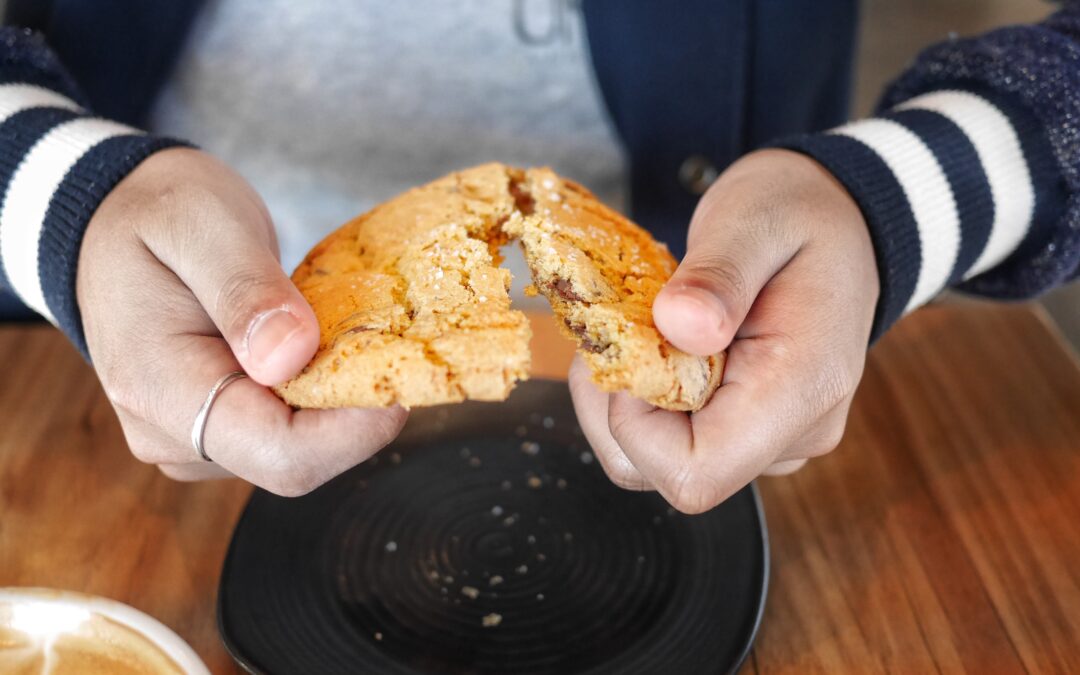I have a big cookie, I break it in two
Some for me and some for you
I’m sharing!
When my sister was in pre-school, she learned this song. The last line about sharing was shouted in loud toddler glee. The short song is catchy—it was stuck in my head for hours after she sang it three or four times—and embodies some of the best principles for living that you would want a young person to learn.
It reminds me of the book by Roebrt Fulghum, All I Really Need to Know, I Learned in Kindergarten (1989). The first of ten principles that he lists as life lessons from the age of five is “Share everything.”
It makes a lot of sense when you think of children. It’s a lot harder for adults. At least it is for me. One of my greater challenges in loving partnership and parenting is sharing. Living in gracious community requires sharing—sharing space, sharing feelings, sharing resources, sharing that last spoonful of ice cream. My parents were generous people who taught me the important of volunteerism, charity and social service, but I’ve found that sharing time is easier for me than sharing stuff. I was raised as an only child (I’m more than twenty years older than my sister), and I just didn’t have to share my cookies, clothes or toys very often. I wasn’t opposed to it; I just didn’t get a lot of practice doing it.
I think this applies to as much to societies as it does to individuals. That’s why I’m so impressed by billionaire Warren Buffet’s recent Op-Ed in the New York Times, “Stop Coddling the Super-Rich.” He describes the extraordinary tax breaks that he and other millionaires and billionaires receive from the federal government. He notes that he and other “super-rich” people pay a lower percentage of their incomes in taxes than poor and middle class people.
Buffett asks for “shared sacrifice” and implies that sharing resources through taxing the wealthy is an indication of decency: “I know well many of the mega-rich and, by and large, they are very decent people . . . Most wouldn’t mind being told to pay more in taxes as well, particularly when so many of their fellow citizens are truly suffering.”
This reminds me of one of the stories told in the book of Ruth. When Naomi and Ruth find themselves without husbands or sons for economic stability, Ruth goes to Boaz’s field to pick up the leftover crops for sustenance. As the owner of a field and as a man in good standing in his community, he knows that crops must be left in his fields for the less fortunate. The Holiness Code in Leviticus 17-26 indicates that these crops should be left for the poor and strangers. Deuteronomy 14:19-22 states that the remains for the harvest should be left for widows, orphans and strangers.
Although the required practice of gleaning is given as a law for the ancient Hebrew community, we get the clearest picture of a named lead character engaging in this practice in the book of Ruth. This should come as no surprise. When economic times are difficult, the burden disproportionately falls on women and their children.
Thus I am concerned when I learn that the “supercommittee” of the U.S. Congressional twelve who will make proposals about reducing our debt has only one woman. A recent Washington Post article, “Debt Supercommittee Lacks Diversity,” reminds us that not only are women 51% of the U.S. population, but “56 percent of Medicare recipients are women and a large portion of Medicaid funding goes toward supporting nursing homes—facilities where the vast majority of residents and workers are women.” After a lifetime of unequal pay, women have an even greater need for guaranteed healthcare when work is done.
Gleaning—as struggling for work and common resources now—often comes at great risk to women. Boaz has to tell Ruth that he will protect her from the men of the field. This suggests that a woman on her own—without the protection of male patronage – may be victimized or abused. If the representation of the supercommittee is any indication, poor women will only be protected if some men decide to look out for their interests.
I’m dismayed that we have to be so concerned about our government sharing resources with those who may need them most.
I see hope in Ruth. I’m impressed that an ancient scripture models for us—in both law and specific practice—what it means for a society to practice sharing. Ruth did not have to ask for special arrangements; she entered a system with those who had long practiced sharing with those who did not have.
I don’t know that sharing comes any easier for countries than it does for individuals, but I suspect that we can follow the same process: learn while young. We could also follow the Hebrew example: make it law and live in it for generations.
I suspect that societal sharing will take some practice, but it will begin like all other disciplines—one cookie, one lesson, one harvest field at a time.
(Originally published with Patheos here)




